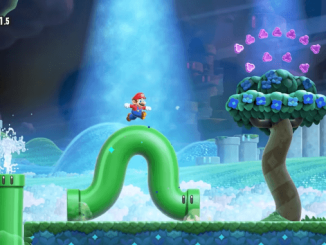That name is a bit misleading.
While (understandably) taking its name from its most famous member, it helps to understand the Ehnes Quartet is not merely the James Ehnes show: quartetmates Amy Schwartz Moretti (violin), Che-Yen Chen (viola), and Edward Arron (cello) are all stars in their own right, whether as solo, ensemble, or orchestral musicians. Brandon, Manitoba’s own James Ehnes may be the best known – he has a Grammy, a bookcase’s worth of Junos, and is widely reputed as one of the great working violinists today – but the opportunity to get these four musicians in one room, making music together, is a treat not to be missed.
Tuesday’s Music Toronto season launch concert featuring the Ehnes Quartet at the St. Lawrence Centre for the Performing Arts is case in point.

Founded a half-century ago, Music Toronto, now headed by renowned Canadian cellist Roman Borys, presents a highly acclaimed fall-winter series of traditional and contemporary chamber music concerts and recitals. This year’s concerts include the celebrated Tetzlaff / Tetzlaff / Doerken Trio (Oct. 21, 2025), pianist Michelle Cann (Nov. 11, 2025), and, probably the biggest event of the season, superstar cellist Steven Isserlis in recital with Canadian pianist Connie Shih (Apr. 23, 2026).
Though founded nearly twenty years ago, this week’s concert was in fact the first time the Ehnes Quartet has performed in the city which Ehnes calls home. The supersized programme – three quartets plus an encore – almost feeling like an apology for having taken so long to come here.
First up was Mendelssohn’s final quartet, the String Quartet No. 6 in F minor, Op. 80, composed shortly before his premature death in 1847 at the age of 38. Brimming with passion, anger, even fury, the quartet is an extraordinary work, full of the raw emotion of Mendelssohn’s final days (he was grieving the recent death of his beloved sister Fanny at the time). Inevitably tinged with our knowledge of Mendelssohn’s health and what was to come, any performance of the String Quartet No. 6 is going to be a standout, and the Ehnes Quartet’s was no exception.
The first half of the programme closed out with Leoš Janáček’s equally fraught Quartet No. 2, JW VII/13, aka the Intimate Letters quartet. Serving as a showcase for violist Che-Yen Chen – the viola part was intended by Janáček to represent the married woman with whom he had fallen into passionate, unrequited love – Intimate Letters is also, like the Mendelssohn, a final work. Composed in 1928 shortly before Janáček’s death, it followed on multiple operas, concertos, and other works dedicated to the much younger Kamila Stösslová, who Janáček had met nearly a decade earlier. The highlight of the quartet is the Moderato, with its achingly beautiful expressions of longing, as embodied by the viola part.
The second half of the programme was Beethoven all the way.
The String Quartet No. 7 in F, O. 59, No. 1, one of the three “Razumovsky” quartets dedicated in 1806 to the Russian ambassador to Vienna, is an audience favourite. Representing a major evolution in Beethoven’s style, the quartet isn’t easy, necessarily – it’s quite lengthy, there are complicated progressions across multiple keys – but it’s deeply rewarding for the engaged listener. The highlight, again, is its mournful slow movement, which gave Mr. Ehnes himself an opportunity to shine in its cadenza-like passages.
Officially the end of the formal programme, rapturous applause earned the audience a brief, delightful encore, in the form of the final movement of Beethoven’s String Quartet No. 4 in C minor, Op. 18, No. 4. A prestissimo rondo, it was an energetic way to round out the evening, as we headed out into the unseasonably warm Toronto evening.
***
Tickets for Music Toronto’s 2025-26 season are on sale now.



